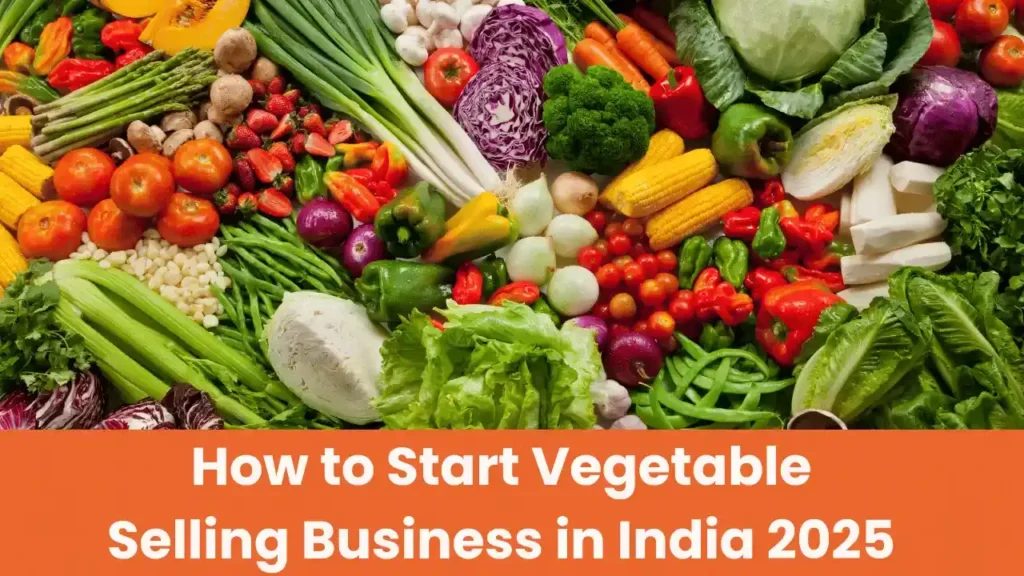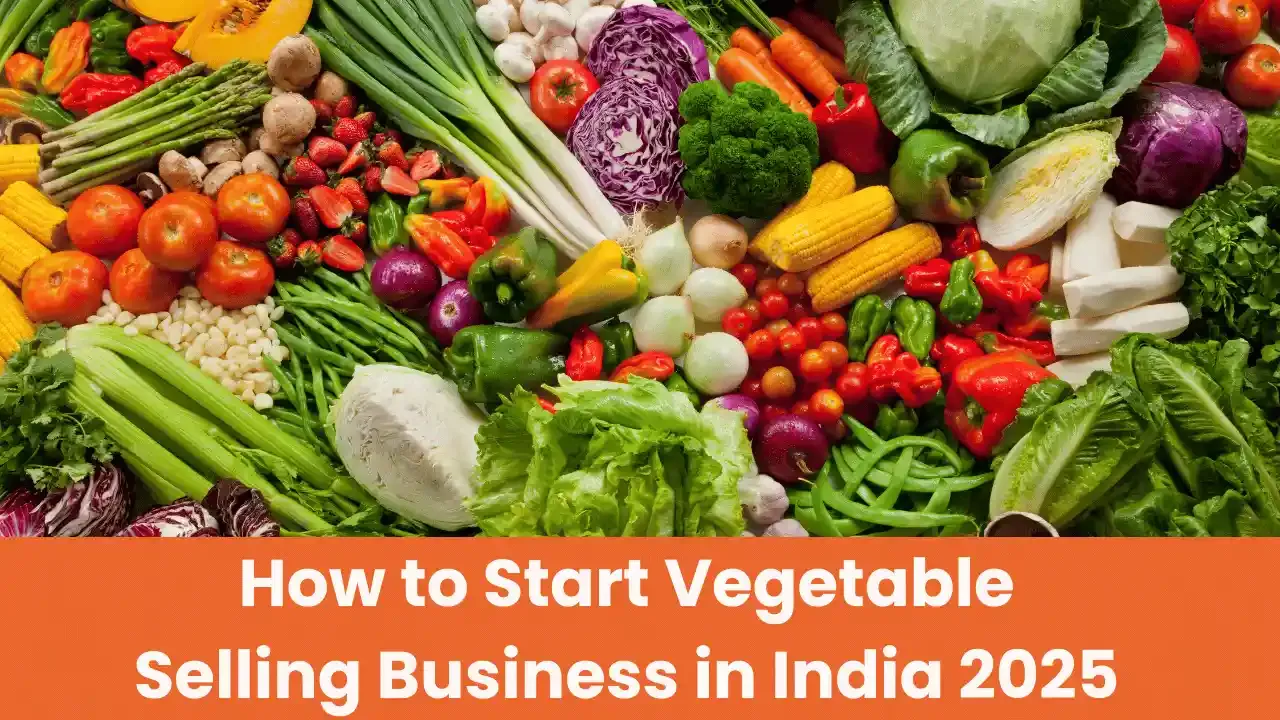Starting a vegetable selling business in India in 2025 is an excellent entrepreneurial opportunity due to the consistent demand for fresh produce across the country. With urbanization and the growing focus on healthy living, there’s a steady market for vegetables. This guide will walk you through the steps to start your vegetable selling business successfully.
Understanding the Vegetable Selling Market in India 2025
Before starting any business, it’s essential to understand the market. The vegetable market in India is vast and diverse, catering to a population that highly values fresh produce. In 2025, factors like organic vegetables, doorstep delivery, and competitive pricing will play significant roles in determining business success.

Steps to Start a Vegetable Selling Business in India 2025
1. Conduct Market Research
Market research is the first step to starting a vegetable selling business in India. Research the local demand, customer preferences, and competitors. Identify the type of vegetables that are in demand and whether organic vegetables have a market in your area.
2. Choose Your Target Market
Define whether you want to cater to households, restaurants, hotels, or businesses. Each segment has different requirements. For instance, restaurants may require bulk orders, while households may focus on fresh and organic produce.
3. Create a Business Plan
A solid business plan outlines your objectives, financial projections, and operational strategies. Include the following:
- Initial investment requirements.
- Sources of vegetables (local farmers or wholesale markets).
- Distribution methods (doorstep delivery, store setup, or both).
4. Legal Registration and Permits
Register your business as a sole proprietorship, partnership, or company. Obtain necessary licenses such as:
- FSSAI (Food Safety and Standards Authority of India) license for food safety.
- GST registration.
- Local municipality licenses if setting up a shop.
5. Source Fresh Vegetables
Establish relationships with local farmers or wholesale markets to source fresh vegetables. Ensure quality consistency, as it directly affects customer satisfaction.
6. Set Up Your Business Location
Choose a high-footfall area for your vegetable shop, such as residential neighborhoods or marketplaces. If operating online, ensure you have a proper storage and delivery system.
7. Decide on Pricing
Set competitive prices for your vegetables. Consider factors like sourcing costs, transportation, and market rates. Offer discounts to attract customers initially.
8. Use Technology for Growth
In 2025, technology will be a crucial driver of business success. Create a website or mobile app for online orders. Use digital payment systems like UPI, wallets, and cards to offer convenience to your customers.
9. Marketing Strategies for Vegetable Selling Business
Offline Marketing
- Distribute flyers in your local area.
- Collaborate with local businesses for mutual promotions.
- Use banners and posters near residential complexes.
Online Marketing
- Use social media platforms like Facebook, Instagram, and WhatsApp to promote your business.
- Run Google Ads targeting local customers searching for fresh vegetables.
- Offer loyalty programs for recurring customers.
10. Focus on Quality and Hygiene
In 2025, customers are increasingly health-conscious. Maintain high standards of hygiene and freshness. Ensure proper cleaning and storage to retain the quality of vegetables.
11. Start Doorstep Delivery Services
Doorstep delivery is a lucrative service for urban areas. Invest in a delivery vehicle or collaborate with local delivery partners to ensure timely services.
12. Expand Your Product Range
Once your vegetable selling business is established, expand your product range to include:
- Fruits
- Organic vegetables
- Pre-packaged salad mixes
Challenges in the Vegetable Selling Business in India
Starting a vegetable selling business in India comes with challenges:
- Seasonal availability of certain vegetables.
- Price fluctuations due to weather conditions.
- Competition from local vendors and supermarkets.
To tackle these challenges:
- Diversify your product range.
- Build strong relationships with suppliers.
- Stay updated with market trends.
Future Trends in the Vegetable Selling Business 2025
The vegetable selling business in 2025 will witness significant transformations:
- Rise in Organic Vegetables: Health-conscious consumers prefer organic produce.
- Online Platforms: Digital platforms for vegetable delivery will dominate the market.
- Subscription Models: Customers might prefer weekly or monthly subscription packages for fresh vegetable deliveries.
Profitability of Starting a Vegetable Selling Business in India 2025
The profit margins in the vegetable business are highly attractive if managed efficiently. By sourcing vegetables directly from farmers and selling them to end customers, you can reduce intermediaries and maximize profits. Offering premium services like organic produce or doorstep delivery can further boost earnings.
Conclusion
Starting a vegetable selling business in India in 2025 is a promising venture with high potential for growth. By understanding market dynamics, leveraging technology, and maintaining quality standards, you can establish a profitable and sustainable business. With increasing demand for fresh and organic vegetables, this is the perfect time to tap into this market.
Read also: How to Start a Laundry Business in Ranchi, Jharkhand: A Comprehensive Guide
Read also: How to Start Bhains Business in India: A Comprehensive Guide
